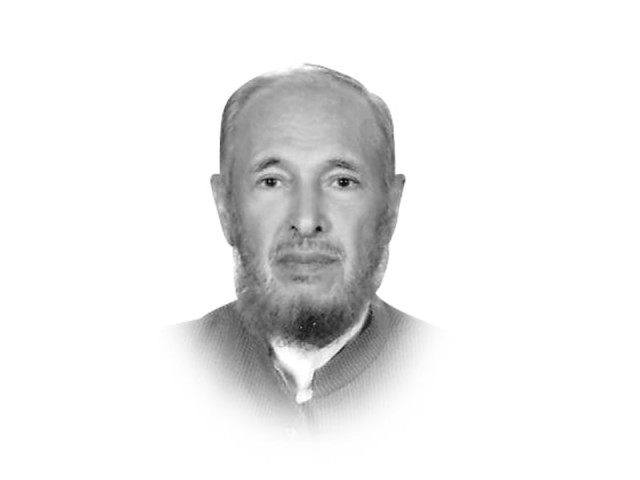Need for peace in Afghanistan
It seems West will leave Afghanistan again in shambles just as it left Iraq which practically split along ethnic lines

The agreement envisages the formation of a ‘unity government’, i.e., a government in which both the leading candidates would have a mutually agreed share. This arrangement would not be contingent upon the success of one or the other candidate based on a complete recounting of all the ballots. In other words, while the recount supervised by the UN would deliver only one candidate as a winner, in this setup, the losing candidate would also be part of the new government. In order to give a practical shape to this concept, a new position of a chief executive would be created by amending the constitution: first through a presidential decree and then through the procedure contained in the constitution.
This was hardly surprising. The two candidates have so much in common: they are the product of the American scheme of things that was ushered in Afghanistan in October 2001. Both are beneficiaries of the Afghanistan experiment that was choreographed by Washington after the fall of the previous government. Both have remained ministers for long years in the Karzai administration. Both have no identifiable political parties and are, in many ways, acting as individuals sponsored by powerful ethnic lobbies. Both returned to Kabul in late 2001 and would perhaps, make an exit as soon as there is a palpable sign of ‘real change’.
With so much that binds them together, it was expected that there would be an ‘understanding’ soon enough to pave the way for a successor to the incumbent president to take office and proceed to sign the Bilateral Security Agreement (BSA) with the United States. That is exactly what happened.
But many Afghans that I interacted with were not happy with the ‘overbearing’ presence of a senior American minister to oversee the accord that was finalised in Kabul on August 8. It was as if the ‘occupation’ forces were in the driving seat in a matter of concluding the negotiations for ending the stalemate that has arisen because of allegations of ballot rigging by one candidate — in this case, the losing candidate.
But what is likely to change as a consequence of the agreement or the assumption of office by Mr Ashraf Ghani?
A change would follow only if he is able to persuade the resistance to enter into negotiations that could lead to their mainstreaming into the political and electoral processes of the country. Obviously, such a development would be premised on the complete withdrawal of all foreign forces from the country.
That may not be an easy task to accomplish for the new president. And if this does not materialise, the ‘change of the guards’ would be more ceremonial than substantial. ‘Karzai 1’ would have been replaced by ‘Karzai 2’.
The fundamental issue on which hinges the peace architecture is the cessation of hostilities and the end of the conflict that has devastated Afghanistan in the last 12-plus years of war. The war has cost the US an astounding one trillion dollars. There has been significant progress in many areas like communication, education, power, IT, health infrastructure, human resource development, mineral exploration, etc. But these gains, valuable as these are, could be weighed against the horrendous losses inflicted upon that hapless nation in terms of more than one hundred thousand people having been killed, hundreds of thousands having been wounded, destruction of property, houses, infrastructure — is not easy to determine.
The Afghans are now desperate for peace. I noticed there was a deep longing for peace and security across all spectrums of the Afghan society. But equally, there was a passionate urge amongst the majority of Afghans for the full and complete withdrawal of all foreign forces. The beneficiaries of the status quo voiced a different opinion, however.
What upset most Afghans was that little or no efforts are underway to seek to build a consensus on how best to forge an understanding so that the resistance could be mainstreamed. That was, as many people admitted, the only long-term solution to the myriad problems confronting Afghanistan. Short of incorporating the resistance in the government and its many institutions, the mayhem, the fighting and the pervasive insecurity would continue with all its attendant destructive implications for Afghanistan .
The international community led by the United States does not appear to have any definitive road map either for peace or long-term reconstruction of the country. For instance, it is not clear who would bear the cost of 5.2 billion dollars annually for the maintenance of the behemoth that is the Afghan national army and the police and for how long? How would the government be sustained in a country which needs more than 2.5 billion dollars annually for its administration and development when it collects only about 1.5 billion dollars? In the event of the attacks on government forces escalating , who would provide the additional resources that are needed to defend the state infrastructure and its security forces ?
It seems the West would leave the country yet again in a shambles just as it has left Iraq which has practically split along ethnic lines with millions displaced and about a million having been perished in a war that was executed to destroy the non-existent weapons of mass destruction.
Published in The Express Tribune, August 22nd, 2014.
Like Opinion & Editorial on Facebook, follow @ETOpEd on Twitter to receive all updates on all our daily pieces.














COMMENTS
Comments are moderated and generally will be posted if they are on-topic and not abusive.
For more information, please see our Comments FAQ